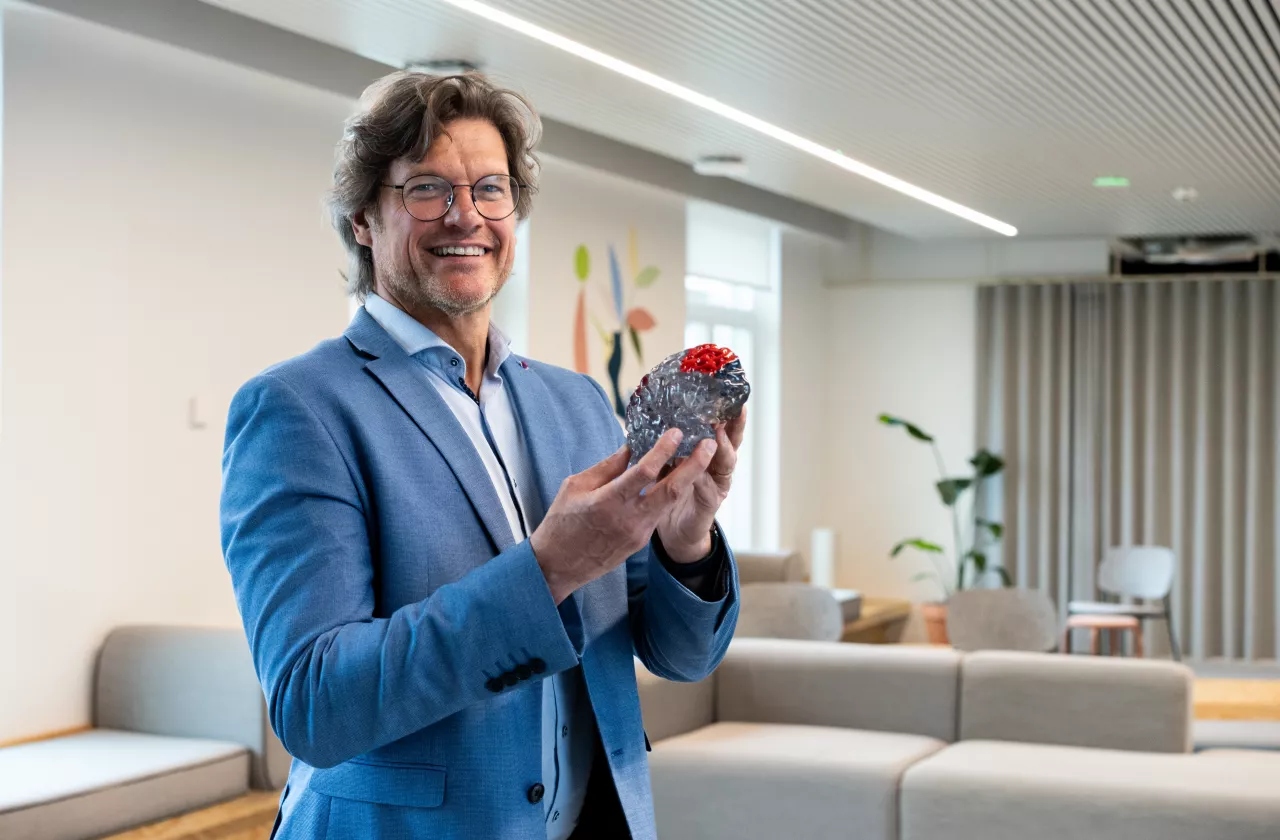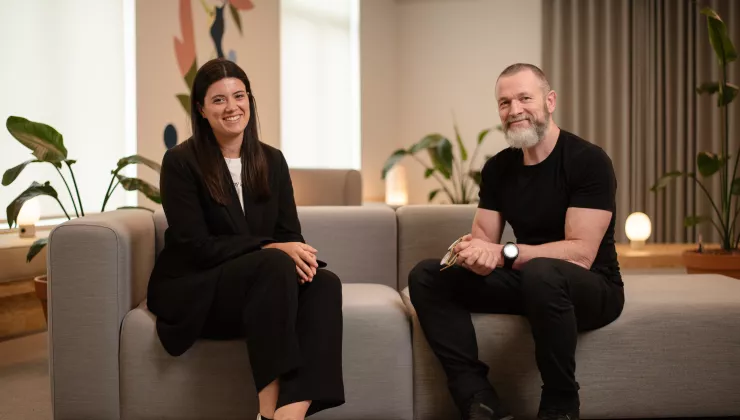Stress and our brain: 3 insights from Steven Laureys

Stress, stress management and mental wellbeing continue to be hot topics on the workfloor. Neurologist Steven Laureys explains how our brain copes with stress when we reach optimal performance and the effects of sleep on our brain. Below is some food for thought in the form of three remarkable insights.
Some highlights of our conversation
#1 The smallest things are the biggest stress busters
Steven is a firm believer of the motto ‘prevention is better than cure’ when it comes to taming our stress levels. Obviously, everyone is different, but in his opinion, often all you need to do is use your common sense. He shared some valuable tips.
“We can encourage a healthy lifestyle with simple, daily things. Sleep, social relationships, a healthy diet and our work environment are all vital. Exercise also matters. Do what you can, and remember that every little bit makes a big difference. Start by taking the stairs instead of the elevator, or stand up every so often when working in a seated position. Avoid fast food when possible and try to stick to a healthy Mediterranean diet, with enough vegetables, fruits and nuts.’
“We can encourage a healthy lifestyle with simple, daily things. Sleep, social relationships, a healthy diet and our work environment are all vital.”
Your environment and living space are equally important, according to Steven. Studies by his team have shown that something as simple as a house plant or a view of some greenery can positively impact your wellbeing. Ultimately, we are all human beings who need to connect with nature.
#2 Sleep is the most important tool for our mental wellbeing, body and mind
Steven believes the relationship between sleep and stress should not be underestimated. While there are many factors, sleep is perhaps the most important pillar of our mental wellbeing. “It impacts our neuroplasticity, emotional stability and immune system. Little or poor sleep makes us more irritable, less stable and also increases the risk of brain and immune diseases.”
“While there are many factors, sleep is perhaps the most important pillar of our mental wellbeing.”
Our brain consumes incredible amounts of energy, he explained. By sleeping, we create moments of rest to recover and boost our energy levels. His research, which centred on a video game, showed how important sleep is in storing and processing things that happen throughout the day.
“At night, we consolidate what we learn during the day. The link between sleep and memory was apparent. We demonstrated this by having people play a game that is similar to an escape room. While they slept, the parts of the brain that were activated during the game lit up again. “Those participants whose brains reactivated the most also had the best scores on tests the next day,” he concludes.
Good sleep can thus make all the difference for our body and mind, something Steven demonstrated with an example from his own experience: “I often see people with chronic pain, osteoarthritis or restless legs. After we prescribe treatments, we notice that patients sleep better, which also leads to better biological parameters in the ageing process and in brain scans.”
So, how can we improve our sleep patterns? Steven also had some practical tips for this: “A hot shower can work wonders. As your body temperature drops, your brain signals to your body that it can relax and rest. Herbal teas can also help. You should also definitely avoid screens and coffee before bedtime and exercise or meditate more,” Steven added.
#3 Recognising stress signals is a shared responsibility between employees and the organisations they work for
On this topic too, Steven says it is crucial that you find the right balance. According to him, the onus has historically been placed on the employee. There also used to be a lot of stigma around mental health problems, which only complicated things even more. On the other hand, he also explained that it’s not the company’s role to try to influence what people do in their private lives.
What can an organisation do for an employee, including outside work? He had a ready-made answer to that: “We need to determine what the employer’s role is in the employee’s life. Work planning also needs to be thought through carefully, in terms of time as well as space and the entire organisational chart. ”
“We need to decide what the employer’s role is in the employee’s life. Work planning needs to be thought through carefully,,
“This is an expertise in itself. Here too, studies have shown that this can help to counter burnout, absenteeism and presenteeism.” So how can companies attract and also retain people? The idea is that learned knowledge is retained, and it ultimately benefits all partners. You need to invest in this, I think companies are already doing it, and I think this is more necessary than ever,” Steven Laureys noted.
The conclusion of all this? You need to learn how to walk before you can hit the ground running, something that also applies when dealing with stressors. The little things can make a big difference, and we should definitely not underestimate the impact of a good night’s sleep. Employees and their employers need to work together to manage negative stress.
Steven Laureys had many other interesting, valuable and instructive thoughts to share on this topic. Want to watch or listen to the full video? Employees of organisations with access to our My Health Partner digital platform can watch the interview in its entirety!
